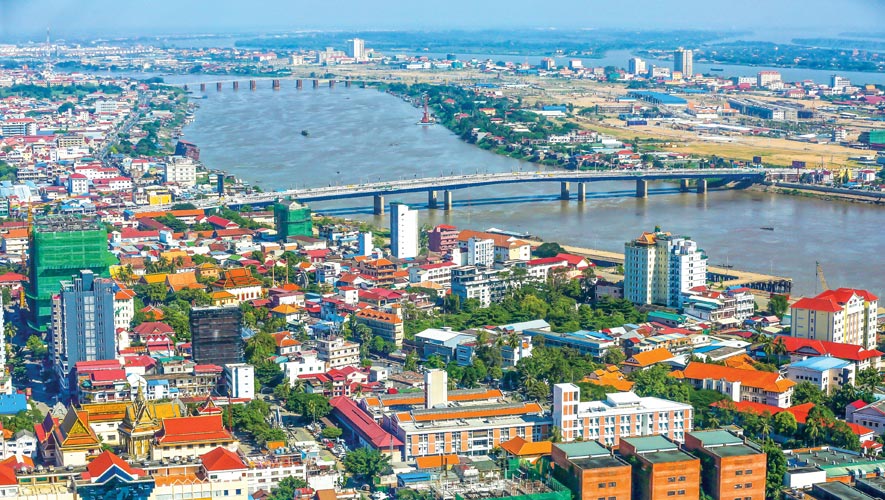Purchasing land for speculation has become a popular sport among Cambodian realtors particularly land bankers. Land speculation is an investment scheme where buyers purchase undeveloped land to sell it for capital gains (often to a developer or another land investor) when the price hikes.
For the latest Cambodian Business news, visit Khmer Times Business
It is common in emerging economies such as Cambodia where rapid development of housing and infrastructure in the outskirts of Phnom Penh, and cities in provinces spur land value. “It is not uncommon for land in certain areas in Cambodia to double in 12 months, which would be considered remarkable for any type of investment. The main benefit of investing in land is due to high returns. The return on investment in an emerging market like Cambodia can be 100 percent,” says Tom O’Sullivan, chief executive officer of Realestate.com.kh.
He adds that public infrastructure, like roads, bridges and railways can drive up land prices. For instance, price per square metre along Hun Sen Boulevard, which is a 60m-long road, where the land surrounding it is only accessible via dirt road used to be $60 per square meter but after it was upgraded, land price rose to about $200 psm.
Similarly, once housing projects in Hun Sen Boulevard are completed and shopping mall Aeon 3 opens, the land price could double or rise beyond that.
“The land price in Boeung Keng Kang I (BKK1) would likely see incremental growth in the next five to 10 years but land prices in areas away from the city centre have the potential of rising more aggressively,” says O’Sullivan.
Cambodian Valuers and Estate Agents Association (CVEA) president Chrek Soknim tells Capital Cambodia that when the act of land purchase reaches a parabola, profit margin is slim.
“Compared to capital cities in Thailand and Vietnam, land price ranges between $8,000 and $10,000 psm but in Phnom Penh (Boeung Keng Kang area), land price is $5,000 to $6,000 psm,” he says. To reach the price levels of Thailand and Vietnam, Boeung Keng Kang land would take five to six years, if it climbs five percent annually. However, land in rural provinces rise between 15 percent and 25 percent without speculation on the land price.
Keller Williams Russey Keo director Nhem Sean Sothea says land investment depends on market demand but real estate prices in Cambodia continue to grow 20 percent to 30 percent year-on-year but some areas are within a bubble.
Return on investment can be said to be fast as purchasers earn 100 times more after buying land for $1 psm 10 years ago. It is not unusual for prices to skyrocket to $200 in that period. Speculations arise from activities in the economic sector, foreign direct investment (FDI), and the development status around that area.
“For those who purchase land at a lower price or 30 percent below market price, risk is minimal but if it is purchased above the market rate, there is a huge risk (of losing money),” Sothea says.
Land banking activities are often carried out by affluent investors who are not concerned about the land price. They are aware of economic activities or government policies that could influence the price. “In fact, some of them know the government’s master plan,” Sothea adds.
In contrast, CVEA’s Soknim says that land price in Cambodia is based on real economy, development and purchasing power rather than speculations.
“Speculation is risky. If we talk about real estate we talk about risk, whether it is high risk or high return. If there is high risk, it could mean high returns,” he adds.




